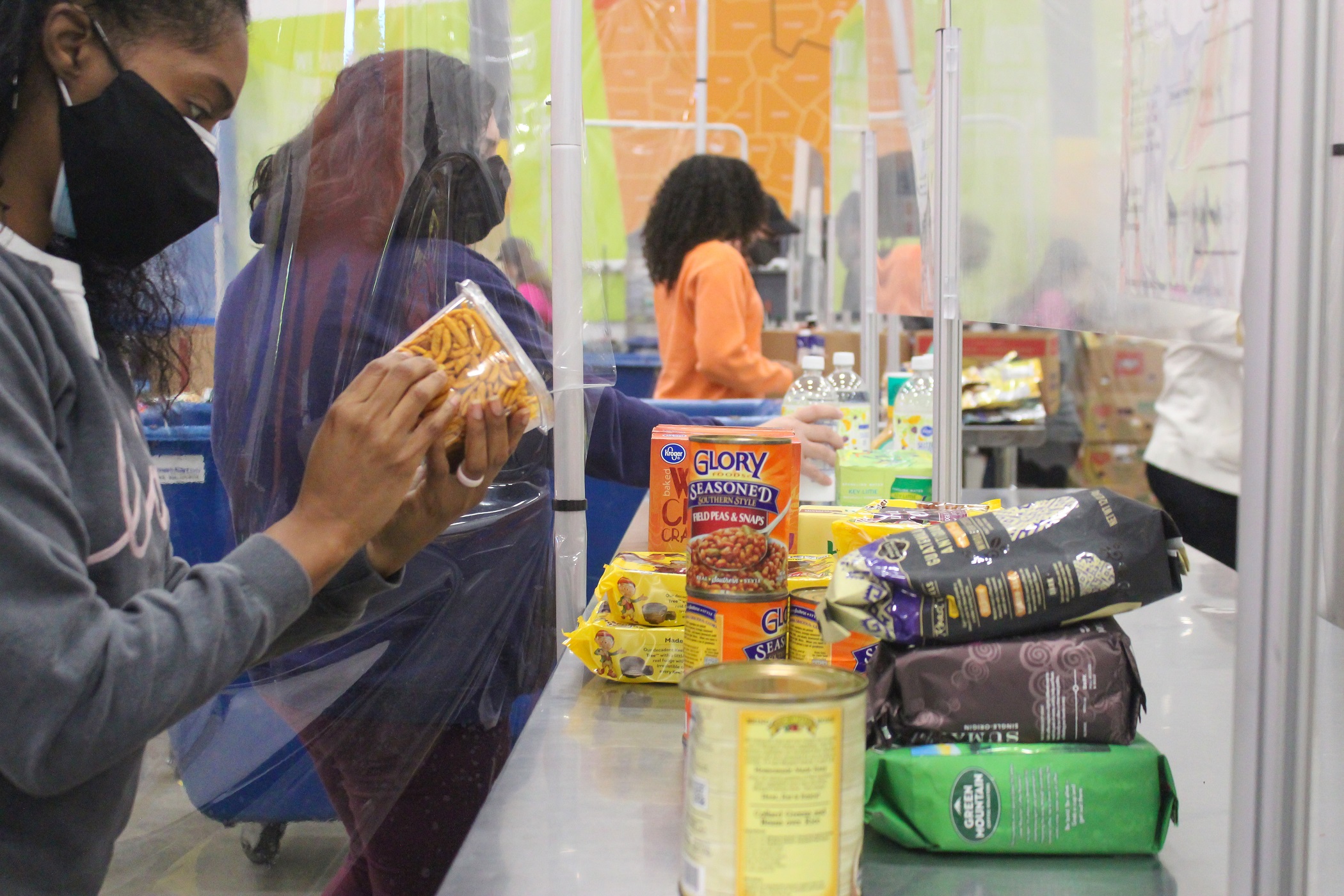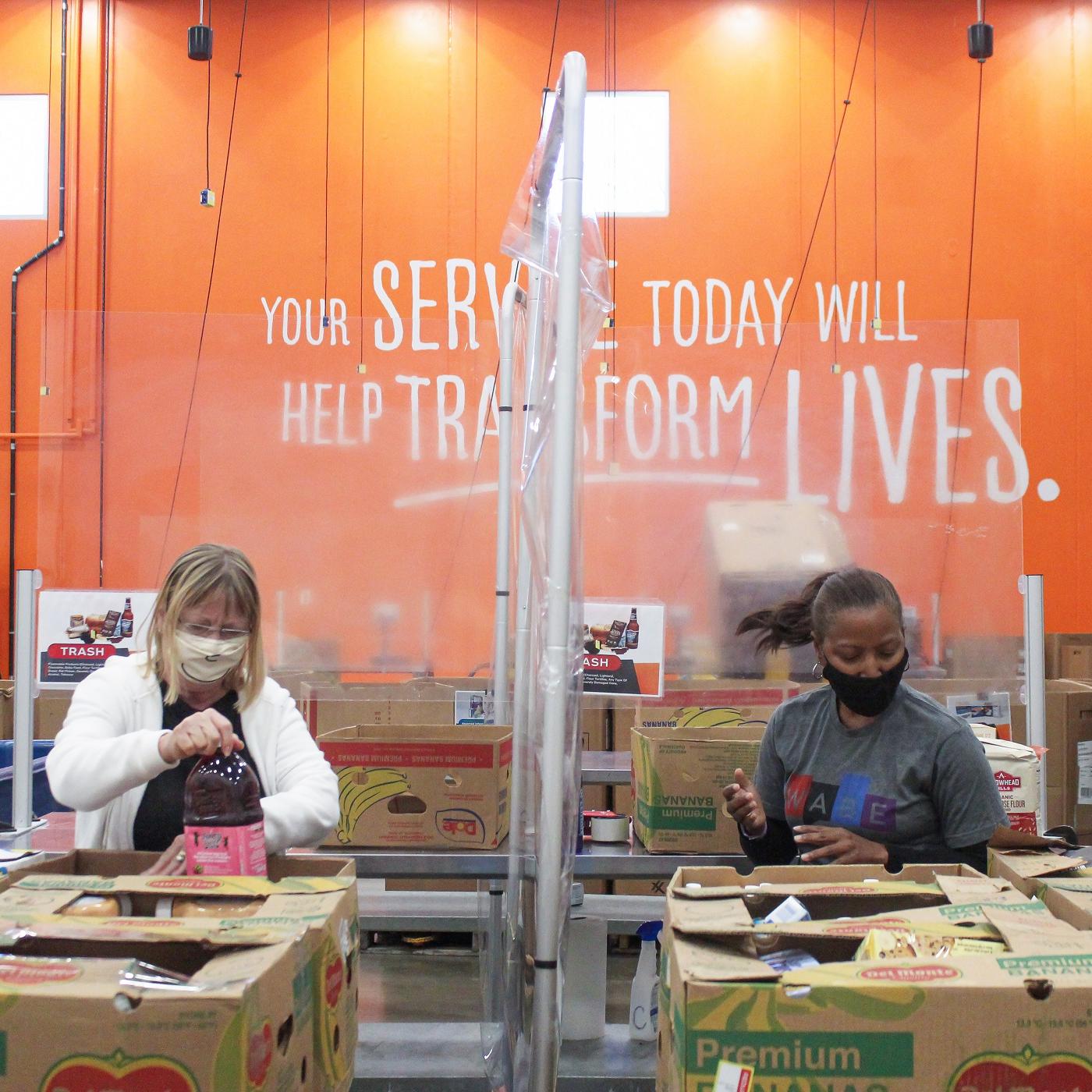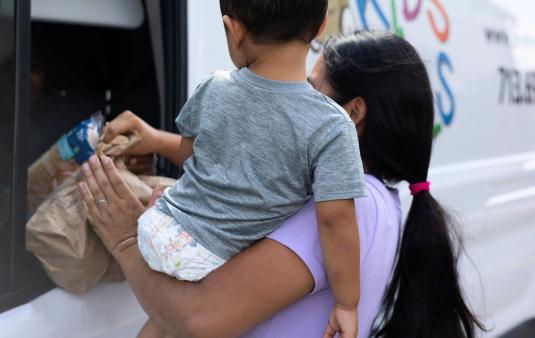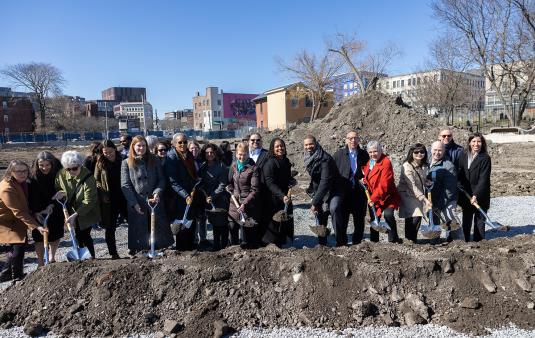For decades, the Atlanta Community Food Bank has been one of the most prominent hunger relief organizations in the country, supplying food and other resources to nearly 700 community-based partners in 29 counties across metro Atlanta and north Georgia. They have the largest physical food bank facility in the nation, an expert operations team and a vast donor network. But the increase in demand during the COVID-19 pandemic was unlike anything they had dealt with before.
“In 2020, when the global economy shut down overnight, we saw a huge increase in need,” says Kyle Waide, President and CEO. “We estimate that the food-insecure population grew as much as 40% in our communities.”
In response, the Food Bank increased food distribution by 65%. In the past year alone, they have provided the equivalent of almost 100 million meals, distributing 116 million pounds of food, and connecting hundreds of families to Supplemental Nutrition Assistance Program (SNAP) benefits.

That increase in operational scale demanded an analogous increase in organizational scale. Waide continues, “We needed to find enough food to distribute; we needed to provide financial support and guidance to our community partners; we needed to add staff to our daily operations; we needed to buy more trucks — as well as personal protective equipment; we needed to shift our entire distribution model to maintain social distancing. In a typical year we spend about $5 million buying food; in the fiscal year ending June 2021 we spent $20 million. How can you scale that fast?”
One answer: A $13 million New Markets Tax Credit (NMTC) investment from BlueHub. BlueHub partnered with Raza Development Fund, the largest Latino Community Development Financial Institution in the US, and PNC Tax Credit Solutions Group, a PNC Real Estate business, which purchased the tax credits, for a combined $33 million NMTC investment. BlueHub works with United Fund Advisors of Portland, Oregon, on its NMTC strategy and investments. The Food Bank will realize a net subsidy benefit of almost $6 million from the transaction to support their mission
Debra Shoaf, Chief Financial Officer, continues, “It is amazing how really quickly people get to a point of desperation concerning something as basic as food. Maybe the mother is a hospitality worker; with COVID, that job disappeared. The children get free breakfast and lunch at school; remote learning eliminated those meals.”


